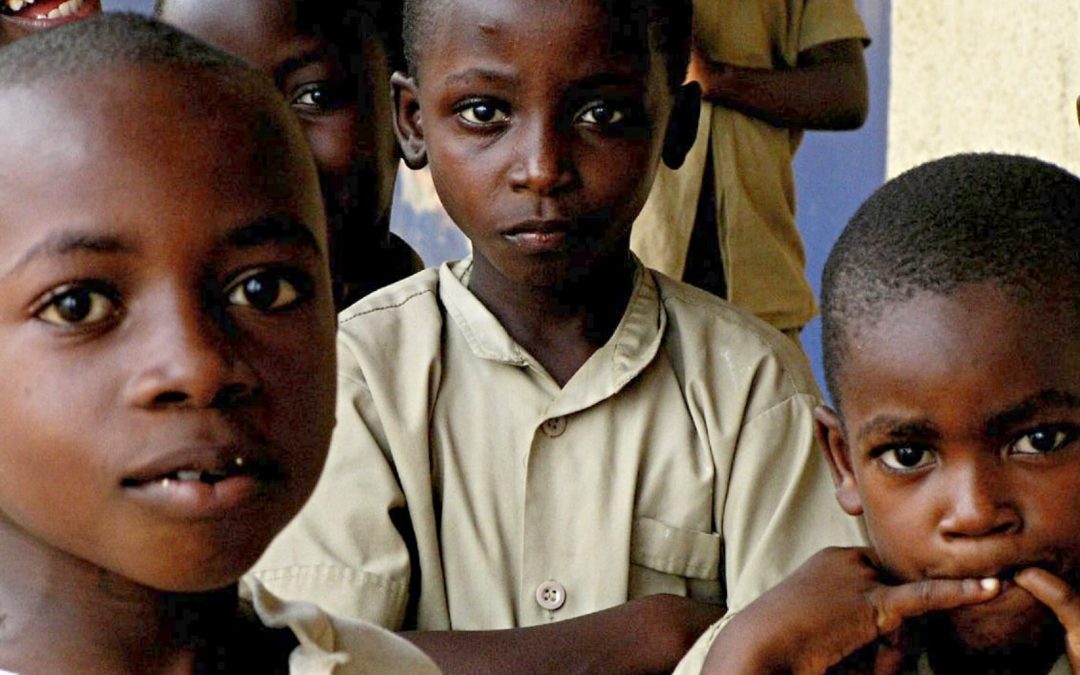Our journey begins in a refugee camp in eastern Africa.
It all started in the streets of camps in Mtabila and Muyovozi, both in Tanzania. While our weekdays were occupied by attending school, our weekends were primarily spent hoping for a brighter future.
Our day-to-day hardships led us to realize that there is more to life than simply struggling with survival in a destitute refugee camp. We wanted to live a better life.
Our parents wanted us to take advantage of every opportunity to build a good reputation and be successful in the future. They decided to apply for resettlement, hoping to be blessed to come to the United States of America.
We endured many hardships. The journey was never easy, but it increasingly became more promising as we pursued our education and expanded our limitations.
Our expedition to the U.S. was quite memorable, but more than anything, it was a learning experience.
Our names are Nehemia Abel and Alain Niyungeko. Having arrived in the U.S. as child refugees, we are now enrolled in college and involved in local faith communities.
We served the Burundian community at home and abroad this summer.
Nehemia:
I served as a Cooperative Baptist Fellowship Student.Church intern with my home church, Fredericksburg Baptist Church in Fredericksburg, Virginia.
The tasks assigned to me ranged from taking out trash from our community kitchen to serving alongside the large population of Burundian refugees in our community.
As a Burundian refugee myself, it was a surreal experience for me to serve my own people, as well as to encourage them to serve others.
I remember out of hundreds of families who had applied to go to the United States, mine was one of the few selected to go.
We were fortunate enough to be chosen, but we do not believe that it was a simple coincidence.
God brought me to the U.S. to serve others who faced the same struggles that I had while growing up.
I took it upon myself to create a community organization with my older brother, Alexander Abel.
The community organization is called UBUMWE, which means “unity” in the Kirundi language, which is spoken in Burundi.
The organization seeks to unify and empower Burundian youths as they pursue higher education and careers through scholarships and mentorship.
My home church partnered with us to minister to those of my native country by a free school supply event.
UBUMWE also held an event in which we took graduating high school seniors to dinner and discussed their transitions to higher education with first-generation students.
Although I am a Burundian refugee, I have yet to set foot in the country that I call home since my family came to the U.S. It is a goal of mine to go to Burundi and serve the youth in my country.
Alain:
I spent a month in my home country, Burundi, this summer, 11 long years since I had been home.
The anticipation, along with the excitement to return under different circumstances, temporarily numbed me to the jarring truth of the harsh realities Burundian youth continue to face daily.
The trip was a life-changing experience. It was difficult seeing the majority of youth work so hard with limited resources in their ongoing struggle to overcome poverty, which is an overwhelming force in my country.
I was taken aback when I realized it was the youth who wandered the streets all day and night seeking means to meet their most basic needs.
As a young man pursuing a higher education, I felt invigorated to continue my education with more energy and commitment.
Their resiliency to overcome the daily obstacles they face inspired me to do something that would alleviate one of their obstacles: working to help address computer illiteracy.
Upon returning to the U.S., I joined an organization called Computer Literacy for Peace and Development, founded by a friend, Christiane Kamariza.
The goal is to use computer training as a catalyst for sustainable peace and development, by equipping Burundian youth with the skills they need to create and acquire jobs in their communities.
I am currently a member of a Catholic church, while my friend, Nehemia, is a Baptist.
The beautiful thing about our ministries this summer is that we were able to serve very similar people and rejoice in the Lord together, without forcing denominational distinction.
Although we did not know each other in the refugee camp, we both were brought together by local organizations that served refugees in the greater Fredericksburg area.
As we continue our path in higher education, we hope to empower the younger generation to be the change that they want to see in the world.
Editor’s note: This article is part of a new series focused on engaging the emerging generations of faith leaders. Learn more about EthicsDaily.com’s “Emerging Voices” and “U:21” series here.
Nehemia Abel is a junior-year student at the University of Mary Washington. He is a member of Fredericksburg Baptist Church in Fredericksburg, Virginia.
Alain Niyungeko is a junior-year student at the Virginia Commonwealth University. He is a member of Saint Mary of the Immaculate Conception Roman Catholic Church in Fredericksburg, Virginia.

